Top image: Kelly / Pexels
Nicholas, 32, was sentenced to seven-and-a-half years in prison along with 15 strokes of the cane for drug trafficking, possession and consumption. After his release in March 2023, he got in touch with RICE to share his takeaways from his arrest, imprisonment and reintegration into society upon release. This is a continuation of his first story, in his own words.
When you’re sentenced to caning, there’s no prior warning as to when you will receive your strokes.
You could be exercising in the cell at 10 AM, and suddenly your number is called. They like to catch you off guard. That lingering dread adds to the punishment.
They do caning in batches. About 10 other guys are lined up according to how many strokes they will receive. I was handed 15 strokes, which is considered a lot, so I was up first.
We were herded to a waiting room. While being screened and having my butt sprayed with antiseptic by the nurses, I heard the caners warming up and practising their strokes on dummy pads. The sound and echoes of the canes hitting the pads only added to the mental torture.
Eventually, we stripped naked and they attached a huge square padding onto our backs with a hole in the centre, which exposed our butts. Then, we were marched to the open yard where we had to greet the Superintendent of Prisons and other officers witnessing the caning.
At this point, I was anxious beyond words. The gravity of the situation hit me and I was choked up with fear.
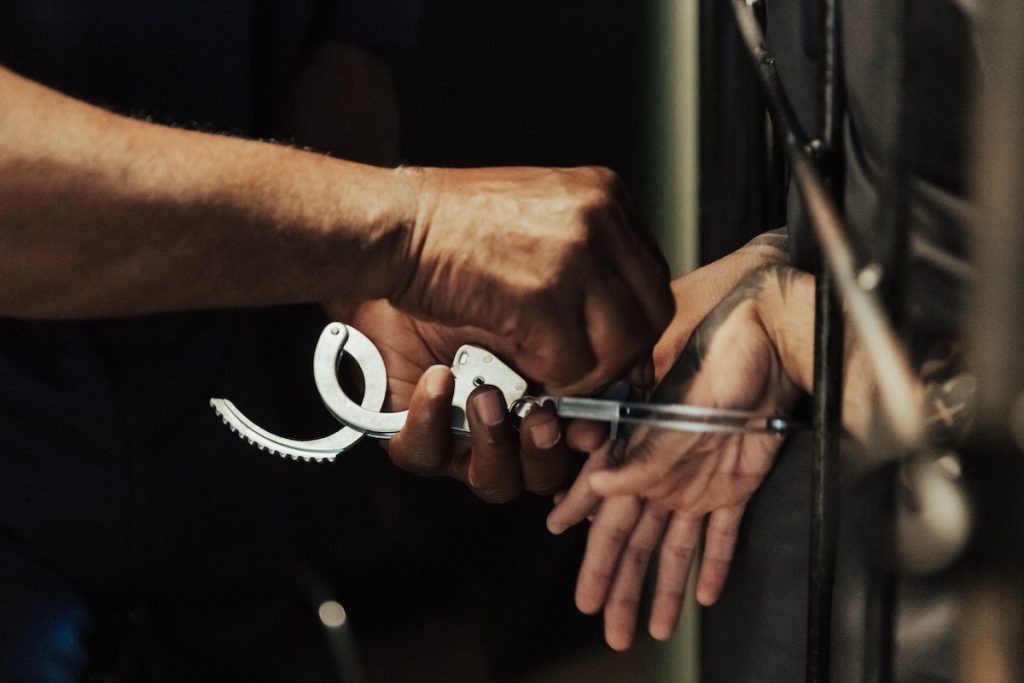
The caners then guided me to a customised A-frame where I was strapped and locked in so I couldn’t run or move. Basically, your body leans over the frame and is shaped like an inverted V. Just being bent over like that, butt naked, already stripped me of all dignity. The caner whipped his cane up and down to warm up and shouted, “First stroke of the cane…”.
The pain of that very first stroke will forever be ingrained into the back of my mind. It is such a sharp, stinging pain that it literally knocks the breath out of you, along with any self-respect you have for yourself.
Halfway through the process, they had to stop because my butt was bleeding profusely. Blood was flying everywhere after each stroke, so the nurse needed to come in, clean up the mess and declare that I was fit to continue.
They then proceeded with the final seven strokes. As a general unspoken rule in prison, inmates are not allowed to shout or express pain during the caning process as a show of toughness. If you do, you’ll never hear the end of it afterwards—your prison cred plummets.
The icing on top of the cake: At the end of the ordeal, when you’re bloodied and dripping in sweat, they unstrap you and you have to go over to the superintendent and thank him. The nurses apply iodine to the wounds and send you back to your cell. No painkillers are given. You deal with the recovery of your wounds on your own with soap and water.
Scarring is inevitable, and to this day, I still have the marks. They will stay with me for the rest of my life.
The Daily Routine
What certainly helps pass the time in prison is to establish your own daily routines. This means carefully planning every hour of your time. This could involve exercising, reading, chatting with cellmates, daydreaming and taking carefully timed naps. You need to be very mindful of naps: Take too many, and you won’t be able to sleep at night.
Reading is huge in prison as a form of escapism, and it certainly helps the hours fly by. As a modest estimate, I read about 300 books ranging from romance novels to thrillers and even self-help books across five years.
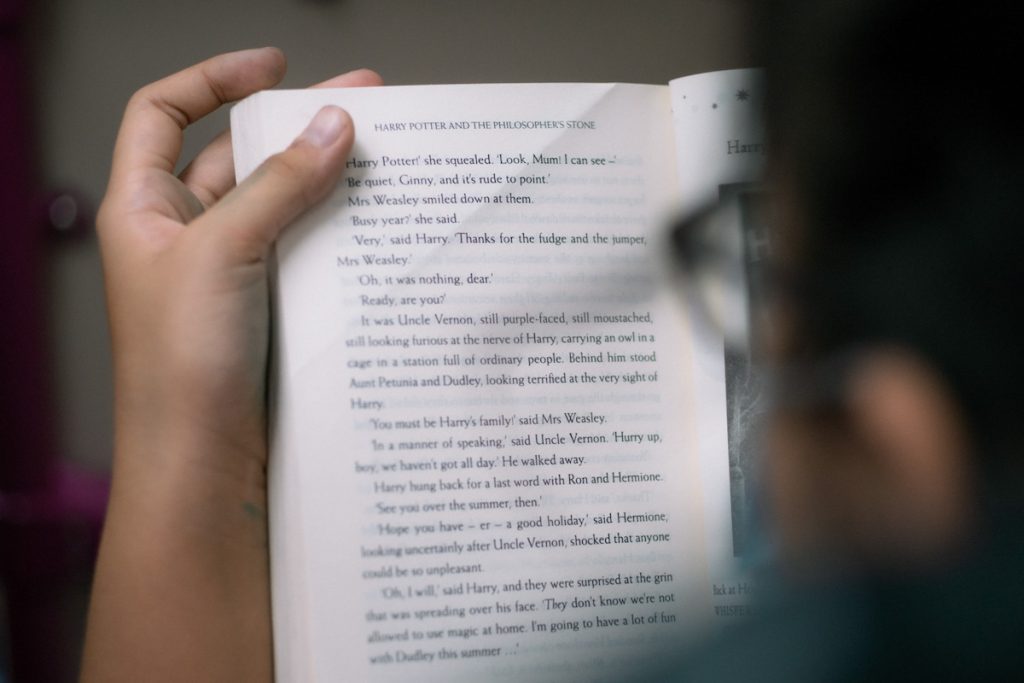
Prisons also now make it mandatory to attend rehabilitation classes immediately after your sentence. I attended four different classes, which incorporated Cognitive Behavioural Therapy, mindfulness and general advice on managing emotions and stress.
These lessons were highly insightful, but I feel that having these classes at the start of your sentence makes them less effective. How much would you remember by the end of your sentence many years later?
Every inmate always looks forward to visits from family and friends. You’re only allowed two visits per month, so they are always cherished.
My mother, who would sometimes bring other family and friends, came for every single visit, without fail, for five years. Because our prison newspapers are heavily censored and come at least two weeks late, visits allow us to receive first-hand real-time updates about Singapore and the world. It also gives inmates a breath of fresh air to catch up with family and friends on the outside.
My visits were always full of laughs as we exchanged stories. I’d hear updates from my friends about their ridiculous love lives. Visits keep inmates sane and help to keep relationships strong.
The Underside
Tattooing is also a huge part of prison culture, which hugely stems from having so much free time in our cells. I myself was trained to become a tattoo artist. I won’t say how we managed to tattoo each other in prison, but you can bet that it involves a lot of improvised materials.
One of the most frequent requests I got was to tattoo the skin below the eyes to make it look like eyeliner. This has become quite a huge trend in prison—I would say the majority of gangsters in prison have this.
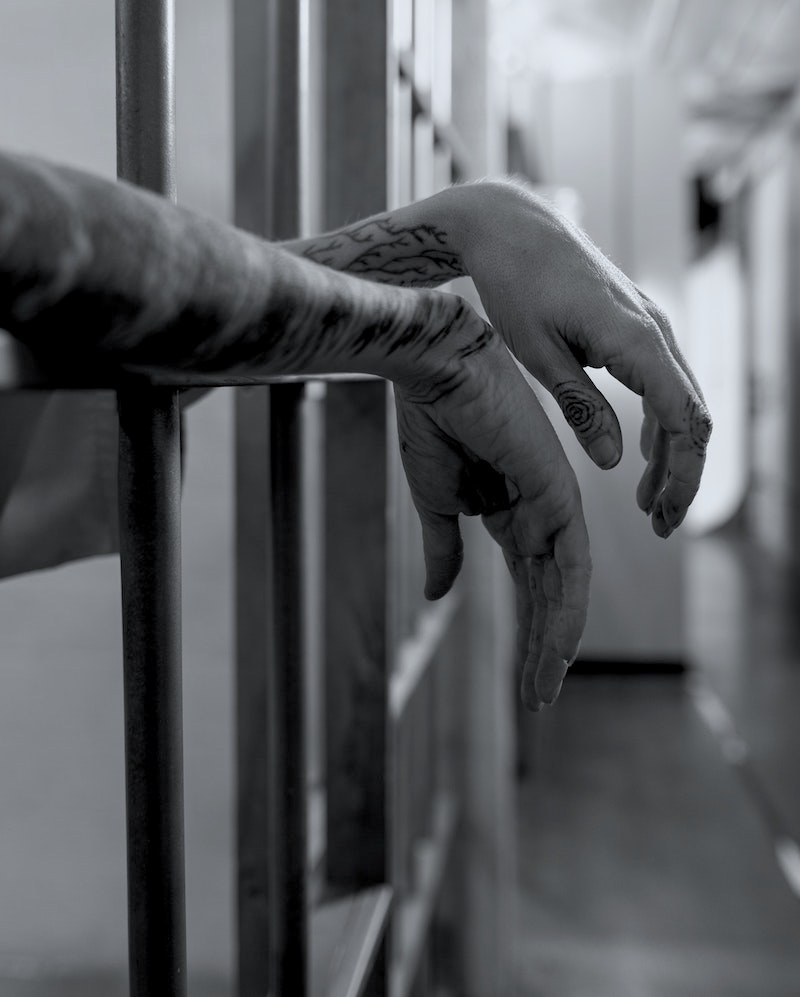
Fights are also a dime a dozen. I’ve witnessed countless fights throughout my sentence, almost once a month, and most are gang-related. If you’re in a gang, the chances of fights increase exponentially.
Most of the time, it’s mainly due to a previous beef one guy had with another before imprisonment.
Most fights go down during yard time, when about 80 inmates gather in the prison yard. These fights generally last up to 45 seconds before an officer runs over to stop it with pepper spray or just the good ol’ chicken wing arm lock.
Otherwise, prison is safe as long as you keep your head down and mind your own business.
Year of Release
All inmates dream about and meticulously plan their day of release constantly, especially when they’re in the last year of their sentence. The days become longer, and falling asleep at night gets difficult.
I only had to serve five years because I was given a Conditional Remission Order, in which my prison stay was only for two-thirds of my entire sentence. Until the end of my full sentence, I’m placed under electronic monitoring (i.e., wearing an ankle tag) and have to ensure I don’t re-offend.
For years, I planned out what I would eat for the first week of my release. But towards the last three weeks of time in prison, that excitement slowly morphed into a nagging anxiety. This caught me off guard.
When inmates are about to be released, there is usually a small celebration among their closest friends in prison. They would typically save up some of their snacks bought from working in prison, and we’d hold supper sessions at night. Eating, drinking and being merry.
Because it’s almost impossible to fall asleep at night due to the excitement, your friends would stay up with you talking about your plans of what to eat, where to go and who to meet. The camaraderie is genuine.
Prison officers are also very nice about it as well. They’ll come up to you, shake your hand and tell you that they never want to see you again unless it’s on the outside.
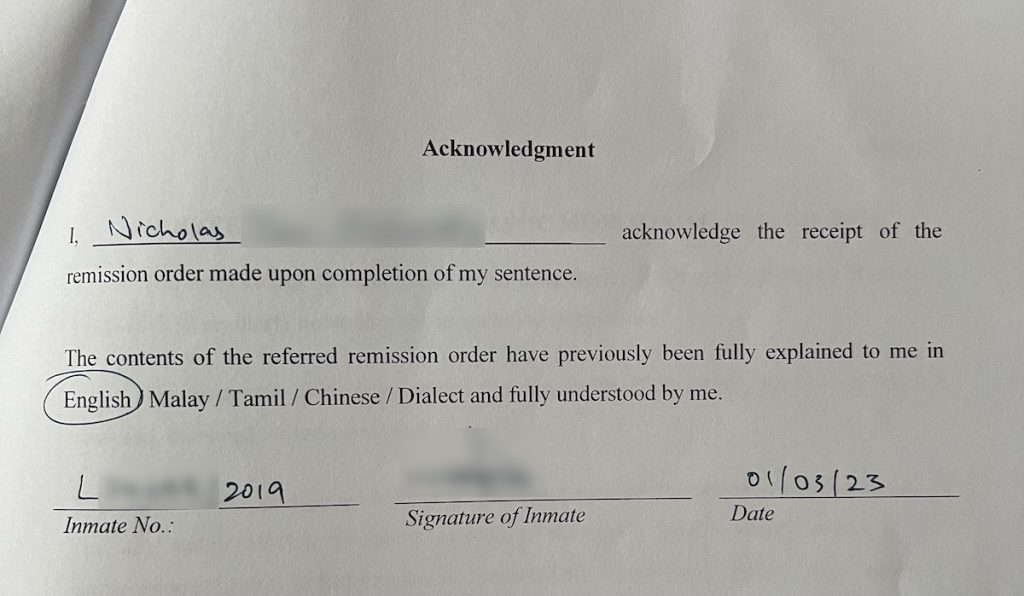
On the day of my release, March 1, 2023, I stepped out of Changi Prison Complex at 1 PM.
Everything just felt so surreal! Seeing cars on the road, trees by the side of the road, people going about their day. I was marvelling at the smallest things that people take for granted every day.
I could not believe I made it out. My family brought me to Marina Bay Sands for burgers and milkshakes.
After being confined within four walls for the past five years, walking around MBS was a serious sensory overload. Sights, sounds and smells were just so overwhelming that panic set in. I lost my appetite and was shaking throughout the entire meal. Even deciding what to eat was challenging because everything was decided for me in prison. What to eat, when to eat and where to go.
Reintegration
Before I left prison, they gave me a pamphlet with avenues to seek help for employment, education, and addiction management—but not so much about mental health problems.
On my first night at home, laying on my bed and trying to sleep, a scary thought kept repeating: I wish I were back in prison where everything is familiar and comfortable.
I feel like this is a major issue that needs to be addressed by prisons and people need to be aware of this phenomenon. It would have been helpful to have been warned that anxiety is to be expected.
For some reason, I did not attend any pre-release programmes. There were classes for employment assistance and skills upgrading but that was it. It would have been helpful to have someone warn me that yes, you will feel lost. Yes, you will feel out of place. Yes, you are going to struggle. But that’s okay! That’s par for the course. Having someone check up on me every couple of days to ask how I’m doing would have been very reassuring.
I was also on drugs for a large portion of my life. I always worried about what I would be like when I’m released and off drugs. Would I still be the same person as before? Would that affect my relationship with my friends?
Thankfully my friends and family have been hugely supportive. They’ve been understanding and patient with me on my way back into the straight and narrow.
I’ve been out of prison for two months now, but I still feel the lingering anxiety, especially in social situations. A sort of dark depression engulfs me now and then. But I seek solace in what the future has in store for me.
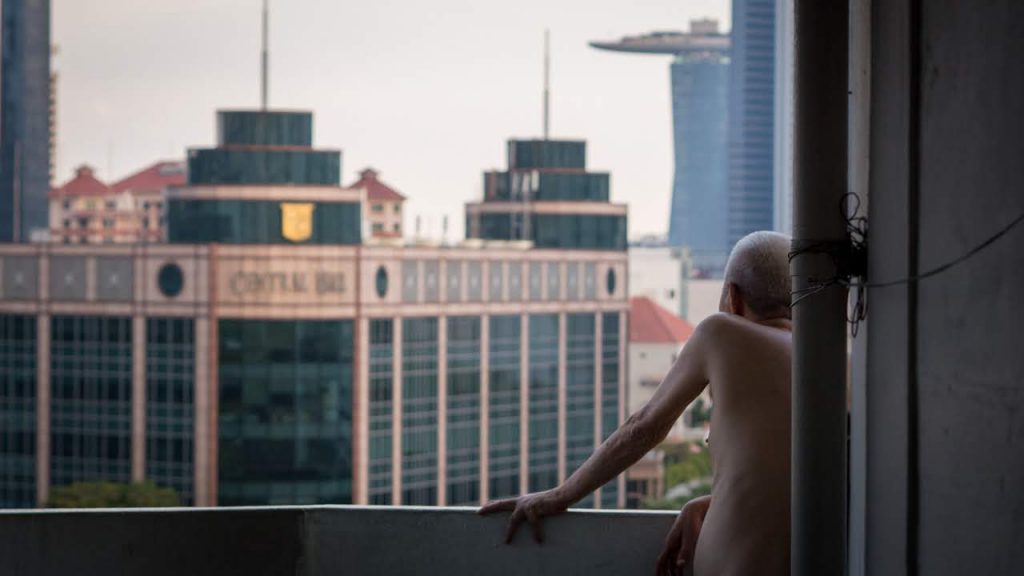
With a Bachelor’s Degree in Psychology, looking for a job hasn’t been that difficult. I feel like the stigma against ex-offenders isn’t as strong as it was before.
When I meet new people and tell them where I’ve been, their reaction is typically one of curiosity and interest rather than shock and disgust. Of course, I do get the occasional stares because of the tag on my ankle, but that’s always to be expected. It’s just something I have to get used to.
Despite going through the toughest years in prison, it has been a vital learning opportunity for personal growth. Those years have toughened my mind—I now feel like any issues I’ll face is nothing compared to having my freedom taken away.
You would think that prison is very dark and sombre, but you’d be surprised to see how much laughter there is within the walls. If you surround yourself with the right people, positivity can always be found in dire situations.
In a sense, it has given me a more positive outlook on life. We have no control over external circumstances. What matters most is how we react to them.






